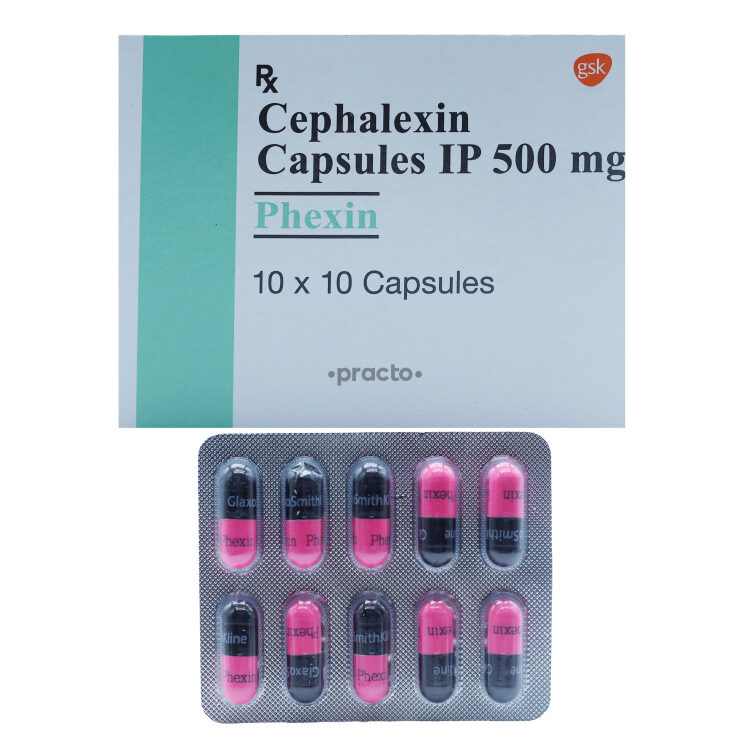Cephalexin is a commonly prescribed antibiotic that plays a vital role in treating bacterial infections. If you've been prescribed cephalexin or are considering stocking up on cephalexin capsules wholesale, it's essential to understand how this medication works, what it treats, potential side effects, and safety precautions to follow. Whether you’re a patient, healthcare provider, or pharmacy buyer, this guide offers valuable insights into cephalexin.
What Is Cephalexin?
Cephalexin belongs to a class of antibiotics known as cephalosporins. It works by interfering with the bacteria’s cell wall formation, ultimately leading to the destruction of the bacterial cell. Cephalexin is effective against a wide range of gram-positive and some gram-negative bacteria.
This medication is available in various forms, including tablets, liquid suspensions, and cephalexin capsules wholesale quantities for pharmacies and healthcare facilities. It is usually taken orally and absorbed well in the gastrointestinal tract.
Common Uses of Cephalexin
Cephalexin is prescribed to treat many types of bacterial infections, including:
- Respiratory tract infections such as bronchitis and tonsillitis
- Skin and soft tissue infections, including infected wounds and cellulitis
- Ear infections (otitis media)
- Urinary tract infections (UTIs)
- Bone infections (osteomyelitis)
- Dental infections
It’s important to note that cephalexin is only effective against bacterial infections and will not treat viral infections like the flu or common cold.
Dosage and Administration
Your doctor will prescribe the appropriate dosage based on the type and severity of your infection, your age, weight, and kidney function. Typical adult doses range from 250 mg to 1000 mg every 6 to 12 hours. Children are dosed according to weight.
When using cephalexin capsules wholesale in a clinical or pharmacy setting, ensure proper storage and labeling. Capsules should be kept at room temperature, away from excessive moisture and heat.
Always take the full course as prescribed, even if symptoms improve before the medication is finished. Stopping early can lead to antibiotic resistance or a return of the infection.
What to Know Before Starting Cephalexin
Before taking cephalexin, inform your healthcare provider about:
1. Allergies
Cephalexin is a cephalosporin antibiotic. If you are allergic to cephalosporins or penicillin, you may experience an allergic reaction to cephalexin. Signs include rash, itching, swelling, dizziness, or trouble breathing. If you’ve had a reaction in the past, alert your healthcare provider.
2. Other Medications
Cephalexin may interact with certain medications. These include:
- Metformin – Cephalexin can increase the effects of this diabetes drug, leading to a risk of low blood sugar.
- Probenecid – Can increase the levels of cephalexin in the blood.
- Live vaccines – Antibiotics may interfere with the effectiveness of certain live vaccines.
Always provide your healthcare provider with a complete list of medications and supplements.
3. Medical Conditions
Discuss any history of kidney disease, gastrointestinal disorders (such as colitis), or liver disease. Cephalexin is eliminated through the kidneys, so dose adjustments may be necessary for those with impaired kidney function.
Side Effects of Cephalexin
Like all medications, cephalexin can cause side effects. The majority are mild and go away after completing the course. However, some may require medical attention.
Common Side Effects:
- Nausea
- Diarrhea
- Abdominal pain
- Headache
- Fatigue
Less Common but Serious Side Effects:
- Severe allergic reactions (anaphylaxis)
- Clostridioides difficile-associated diarrhea
- Liver enzyme elevation
- Blood disorders (e.g., eosinophilia)
If you experience persistent vomiting, jaundice, dark urine, or signs of an allergic reaction, seek immediate medical care.
Antibiotic Resistance and Cephalexin Use
Antibiotic resistance is a growing concern. Misusing antibiotics like cephalexin can contribute to the development of drug-resistant bacteria. Here’s how to use cephalexin responsibly:
- Only take it if prescribed for a bacterial infection
- Do not share with others
- Do not save leftovers for future use
- Complete the full prescribed course
Wholesale distributors and pharmacies handling cephalexin capsules wholesale should also play a role in education, ensuring that end-users understand the importance of correct usage.
Buying Cephalexin Capsules Wholesale
Purchasing cephalexin capsules wholesale is common for hospitals, clinics, and pharmacies that require large quantities. Here are a few things to consider:
1. Regulatory Compliance
Ensure the supplier complies with national and international pharmaceutical regulations. Look for proper licensing, quality control certifications, and compliance with Good Manufacturing Practices (GMP).
2. Shelf Life and Storage
Always check expiration dates. Store cephalexin in a cool, dry place and avoid exposure to light or moisture. Bulk packaging should remain sealed until needed.
3. Reliable Suppliers
Choose reputable suppliers with positive reviews, proven reliability, and transparent return policies. Counterfeit medications are a serious risk in some markets.
4. Cost Savings
Buying cephalexin capsules wholesale can offer significant cost advantages, especially for public health programs or large hospital systems. Bulk purchasing reduces unit cost and ensures consistent availability.
Special Populations
Pregnant and Breastfeeding Women:
Cephalexin is generally considered safe during pregnancy and breastfeeding, but always consult with a healthcare provider before starting the medication.
Children:
Pediatric dosing is weight-based, and cephalexin is frequently used in children for ear infections and skin issues. Liquid formulations are available for easier administration.
Older Adults:
Older adults may have decreased kidney function, which could affect how the body clears the drug. Doses may need adjustment.
Final Tips for Taking Cephalexin
- Take with or without food: Cephalexin can be taken with meals to reduce stomach upset.
- Stay hydrated: Drink plenty of water during your treatment.
- Report side effects: Let your doctor know if you experience unusual symptoms.
- Don’t double dose: If you miss a dose, take it as soon as you remember, but don’t take two at once.
Conclusion
Cephalexin is a trusted and widely used antibiotic that effectively treats a range of bacterial infections. Whether you're a patient following a doctor's prescription or a pharmacy seeking cephalexin capsules wholesale, it's crucial to understand proper use, potential side effects, and precautions. Responsible use not only improves outcomes but also plays a vital role in combating antibiotic resistance. By staying informed, you can use cephalexin safely and effectively.





Comments